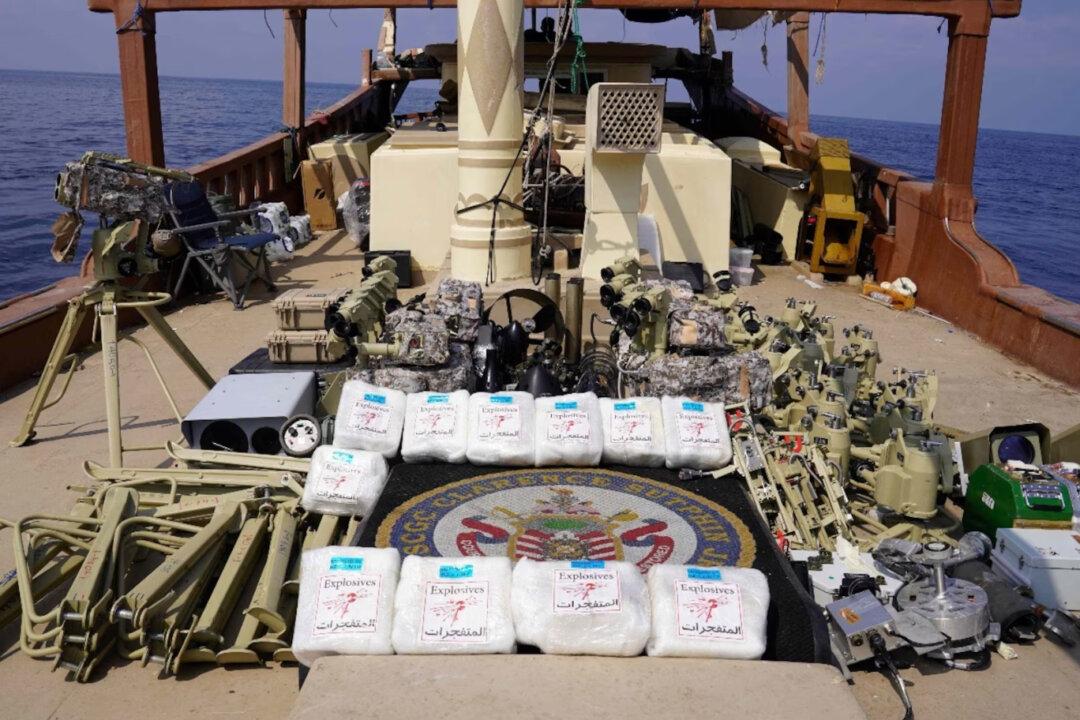The U.S. Coast Guard recently intercepted a shipment of weapon components in the Arabian Sea that they believe were heading from Iran to Houthi-controlled areas of Yemen.
The crew of the U.S. Coast Guard Sentinel-class fast-response cutter USCGC Clarence Sutphin Jr. (WPC 1147) conducted a boarding action against a suspicious vessel in the Arabian Sea on Jan. 28. The U.S. Central Command (CENTCOM) first announced the maritime raid on Feb. 15.





